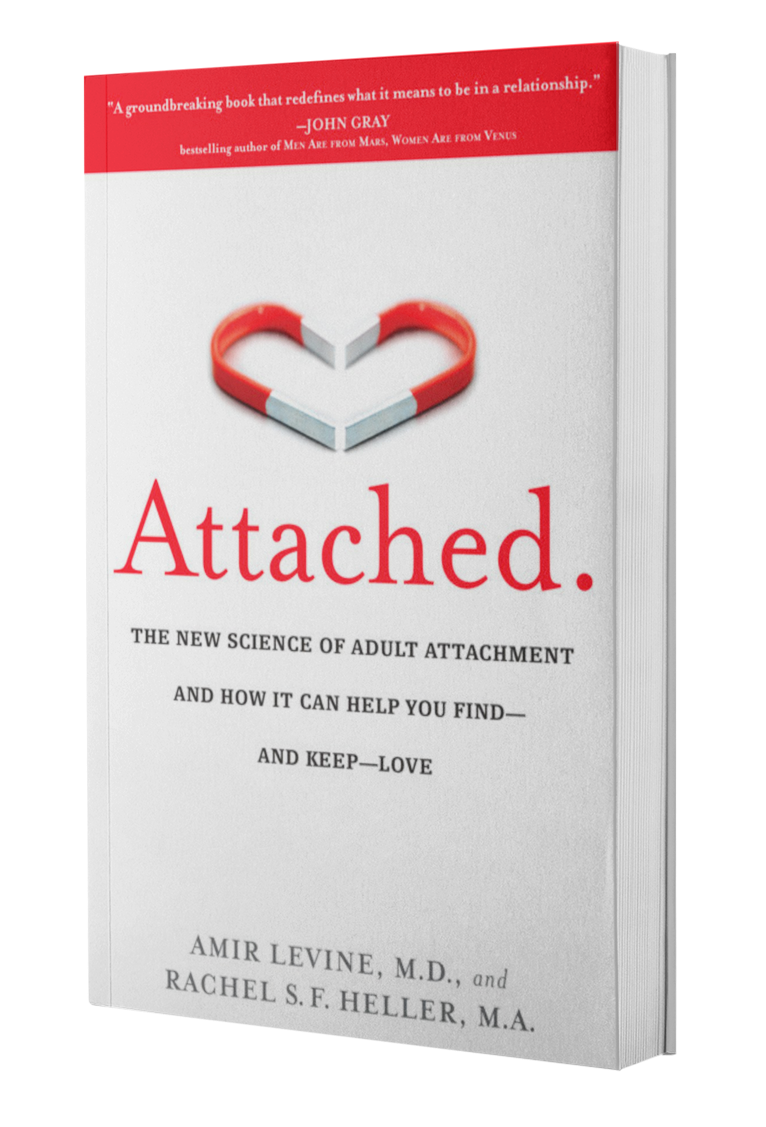Dating is hard
I have recommended this book often to clients struggling to understand their relationship and partner. Attachment science sheds new light on common relational conceptions.
Available at Amazon.ca and Chapters/Indigo
Why does he/she move away from me when I am upset?!
He/she just needs to calm down!
I have never felt more alone than in this relationship!
Maybe he/she isn't the one.
He/she doesn’t seem to care.
I think the problem is that he/she is crazy. Maybe it’s that he/she is depressed.
Our relationship somehow just got boring.
Our sensitivities to our partners are often about “attachment styles”. In this book, take an attachment style questionnaire. Learn about yourself, your partner, and common attachments reactions and relational patterns. Learn how to be there for your partner and to build your relationship around a more compassionate understanding of each other.
It’s available on Kindle, Audiobook, and Paperback!
Or, come into the clinic and we’ll lend you our copy.
How to Negotiate with Terrorists and Kids
Why are kids so unreasonable?! It is because they are also emotional. And so are you and I! This is a wonderful reality, until it seems that emotions have achieved a hostile takeover. A crucial exercise in our human experience is to balance our practical and emotional parts of self.
One of the crucial roles of a parent is that of emotional guide. And what makes the task such a challenge is that at the beginning of parenting we are not fully equipped for the task. We are still in the process of emotional formation …now under the stress of parenting!
Get it on Amazon.ca or Chapters/Indigo
Perhaps rather than blaming parenting for stress, we should credit parenting for the completion of our own emotional formation. Yes, we take on stress for a child’s emotional growth, but it is just as true that the same stress catalyzes our own growth.
If you are looking for elaboration on this perspective, I recommend Dr. Shefali Tsabary’s The Conscious Parent (Transforming Ourselves and Empowering our Children).
Perhaps you’ll find that these priorities are also the very ones that you feel are under personal threat when your child is upset …and now you are upset.
Transcript:
Chris Voss, former lead international hostage negotiator for the FBI explained: the terrorist demand - the money, the helicopter, the window for escape - the demand is not the highest order demand. The highest order objective is control. After that, it's an emotional validation a feeling that they're respected and understood and somewhere below that sits the demand.
Now, this is important to keep in mind when it comes to parenting children and adolescents. Not so that we can strategize to outwit with them, but so that we can discharge some of the upsetting energy that's hidden behind the demand. For children and adolescents the demand is not always as high a priority as it may appear. It doesn't seem like that because all we hear is the demand:
“I want to stay up later.”
“I want more screen time.”
“I want something else to to eat.”
But at the top of the list for every growing and healthy individual is a need to establish a sense of personal control, or autonomy. They're growing into an increased level of responsibility. And when this ability to choose feels threatened, it can send anyone into a panic.
Second on the list for a demanding child or adolescent is emotional validation:
Are my feelings valid? Is it normal to feel this way inside? Is it normal for me to feel upset when I'm not getting what I want or when it may seem that my power to choose is under threat? And if it's not normal, or if my experience feels under question, then I begin to wonder if I'm normal, or if I'm okay, or if I'm valid.
And this can be really terrifying
Now, validating emotion is not a permissive resignation. It's not saying that it's okay to scream at someone else, or lock yourself in your room, or to treat others without respect. But it's normalizing this overwhelmingly upset inner emotional experience. It's saying:
What you're feeling inside makes sense. It's normal. It's so frustrating to not get what you want. I feel upset inside when I don't get what I want and I don't expect I'll ever grow out of that.
Now as far as the demand goes, I have four boys from elementary age to college age. It's tough being a parent, and it's so important to be able to deliver a no when we have to. But if we can offer an unqualified yes to the top two concerns, a sense of personal control, or autonomy, or emotional validation, feeling respected and understood, then you have the difference between a conversation with someone who's terrified and struggling for emotional survival, and someone who simply has an exhaustively demanding enthusiasm for life.
Both are demanding, but one is ready to negotiate


